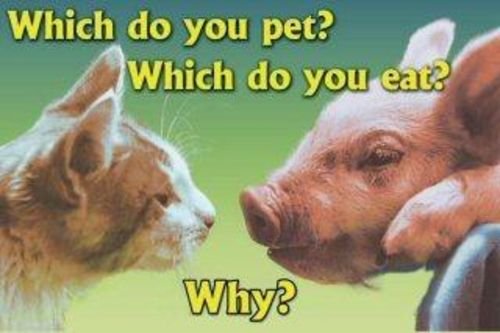I believe that the term "antispecism" would be an inadequate expression. I have three main reasons to support my position.

I understand that it is an expression that clearly denotes hostility.
Although it is correct to reject speciesism, as well as any other unfair discrimination, this should not be an excuse to foster hostile feelings, attitudes or acts. There is already too much hostility - although it is always too much - in this world as well as to increase it even more. I think that hostility is not the right way to approach moral problems. Fostering hatred cannot be the path to respect.
The most effective and ethical way to avoid injustice is not the promotion of hatred of prejudices but the educational understanding of moral values based on principles of equality and justice. Once someone consciously understands this, he can understand why speciesism is unfair. The same happens with other prejudices. It is about fostering reflection and understanding; I do not hate.
It often happens that people assume that racism is wrong, and then foment hostile and hateful feelings against anyone who suspects that they defend racism, but they can hardly explain what racism is argumentative and cannot reason why we should reject it. A clear example of how hostility replaces reason.
Second; rejecting the specific injustice that is speciesism does not necessarily lead to assume a fair position from the moral point of view.
Any unfair discrimination is equally wrong. The moral rejection of speciesism is motivated by the same reason as the rejection of racism, sexism and homophobia equally. There are several specific forms of unfair discrimination. If we had to manifest ourselves as "anti" of each of them, we would not finish listing them. Addressing the problem of speciesism should not serve to ignore other injustices. I am no more against speciesism than about the other equally unjust prejudices.
The mere rejection of speciesism does not entail the rejection of injustice or violence or necessarily leads to an ethic of rights. The rejection of racism would be compatible with defending fascism and totalitarianism if there is no discrimination based on race. In the same way, those who reject speciesism do not unanimously accept the same moral position.
We are wrong if we think that the rejection of speciesism necessarily leads to a just position. You can reject speciesism and defend that all animals - including humans - can be treated as mere resources, without discrimination of species.

The term "antispecism" serves to hide the deep ideological differences that already exist between those who claim to reject speciesism. In the human context, the rejection of racism can be shared by very different ideologies, but that cannot be overlapped under the label of "anti-racism". Liberals, socialists, anarchists, conservatives ... may also be against racism, but their ideological differences between them are notorious and often incompatible. The differences within the animal field are no less marked.
There are important differences between those of us who oppose species discrimination. For example, some advocate an ethic of rights while others assume utilitarianism. Although in principle we share a moral rejection of speciesism, we disagree on many other points that are no less important. This cannot be avoided or try to confuse propagating the erroneous belief that "we are all in the same". We are not. There are "antiespecists" that establish a moral hierarchy and postulate that some animals are worth more than others appealing to supposed differences of intelligence or sensitive complexity. For example, Peter Singer explicitly states that the most intelligent animals have a higher moral value than the less intelligent, and that it would be justified for the less intelligent to be used as mere resources for the benefit of the more intelligent. For the reasons given, I conclude that the "antispecistic" position is more of a problem and not a correct solution to the problem in our relationship with animals.
That position [1] assumes and encourages hostility instead of understanding, [2] does not satisfactorily meet the basic moral requirements and [3] hides the deep ideological differences existing within the animalistic realm. As a solution, I propose that the question is not in identifying our activism only for what we reject but also for what we defend. There is a way to define, in a positive way, a moral position that seeks to achieve equality and radical respect towards all sentient beings: veganism within a context of the philosophy of Animal Rights.